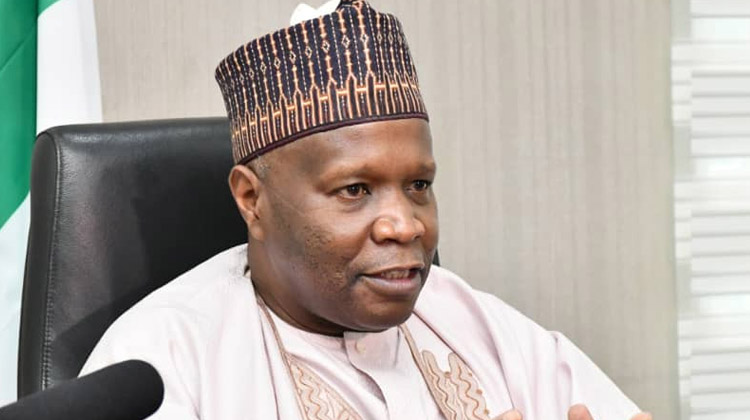The Escalating Insecurity Crisis in Northern Nigeria
Northern Nigeria is grappling with a severe and multifaceted security crisis characterized by banditry, insurgency, and terrorist activities. The region has witnessed a surge in violence, resulting in significant loss of life, displacement of communities, and disruption of socio-economic activities. Recent attacks in Plateau and Benue states highlight the escalating nature of the crisis, with dozens of lives lost and properties destroyed. The North-West is plagued by kidnappings, killings, and cattle rustling perpetrated by armed bandits, while the North-Central region suffers from inter-communal conflicts and attacks by criminal groups. The North-East continues to be ravaged by the Boko Haram insurgency and its offshoot, the Islamic State West Africa Province (ISWAP).
The impact of this insecurity is devastating. Thousands of farmers have been killed in banditry-related attacks, forcing many to abandon their livelihoods and pay levies to armed groups for protection. The overall death toll from various forms of violence in the region has reached alarming levels, with thousands killed and kidnapped in recent years. The security situation is further compounded by the porous borders and the easy flow of small arms and light weapons, making it difficult for security forces to effectively control the situation. The proliferation of these weapons empowers criminal elements and fuels the cycle of violence.
Government Response and Collaborative Efforts
In response to the escalating crisis, governors in the affected states are taking action. Plateau State Governor Caleb Mutfwang has implemented measures such as banning night grazing and restricting motorcycle use to curb the movement of armed groups. The Chairman of the Northern States Governors’ Forum, Governor Muhammadu Yahaya of Gombe State, is engaging with his fellow governors to develop a joint approach to address the insecurity. This collaboration aims to foster stronger inter-state cooperation, intelligence sharing, and coordinated security operations. The Benue State Governor, Hyacinth Alia, is also planning a security summit involving North Central governors to discuss proactive measures to tackle the challenges specific to their region.
Recognizing the critical role of traditional and community leaders, a meeting of the Northern Traditional Rulers Committee was held in Maiduguri, Borno State. The meeting focused on developing innovative strategies to address insecurity and promote stability and development in the region. Participants emphasized the need for collaboration among all stakeholders, including traditional rulers, community heads, and citizens, in the fight against insecurity. The Federal Government has also reiterated its commitment to tackling the security crisis, highlighting investments in military equipment, personnel training, and intelligence gathering.
Challenges and Calls for Action
Despite these efforts, significant challenges remain. The security forces are often outnumbered and outgunned by the various armed groups operating in the region. The vast and difficult terrain also poses logistical challenges for security operations. There are also concerns about the effectiveness of current strategies and the need for more robust measures to protect communities. Middle Belt groups have called for greater action from both the government and the people themselves, urging communities to defend themselves against attacks. They argue that the current approach of relying solely on the military is insufficient and advocate for more proactive measures.
The prolonged nature of the conflict has taken a toll on the morale of both security forces and the civilian population. The constant threat of violence creates an atmosphere of fear and uncertainty, hindering economic activities and development initiatives. The humanitarian crisis resulting from the displacement of communities adds another layer of complexity to the situation, straining resources and requiring sustained humanitarian assistance. There is a growing sense of urgency for more decisive action to address the root causes of the conflict and prevent further escalation of violence.
The Role of the Media and Information Management
The media’s role in reporting on the security crisis has also come under scrutiny. The Federal Government has urged the media to avoid giving publicity to terrorist groups, arguing that such coverage can embolden them and fuel their operations. Instead, the government encourages the media to focus on the sacrifices of the military and the resilience of affected communities. However, there is also a need for accurate and timely reporting to inform the public and hold authorities accountable. Balancing the need for security with the principles of freedom of the press remains a delicate challenge.
Looking Ahead
The security situation in Northern Nigeria demands a comprehensive and multi-pronged approach. Strengthening security forces, improving intelligence gathering, and fostering greater inter-agency cooperation are essential. Equally important are addressing the root causes of the conflict, such as poverty, unemployment, and inter-communal tensions. Engaging with local communities, empowering traditional and religious leaders, and promoting dialogue are crucial for building trust and fostering peaceful coexistence. The international community also has a role to play in supporting Nigeria’s efforts to address this complex crisis. Providing technical assistance, sharing best practices, and coordinating humanitarian aid are essential for restoring stability and promoting sustainable development in the region. A lasting solution will require a concerted and sustained effort from all stakeholders.


